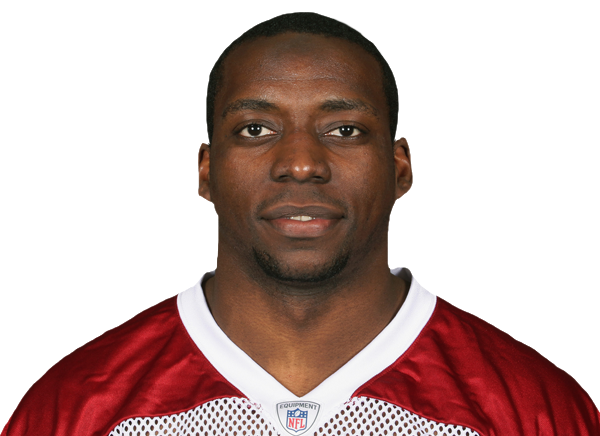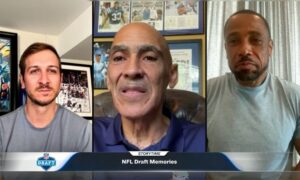Reports circulated late Saturday night that former Pittsburgh Steelers running back Rashard Mendenhall was planning to retire. The former first-round draft selection confirmed as much yesterday in an article published on the Huffington Post entitled, unambiguously, “Why I Retired at 26”.
I took it as a refreshing reminder that athletes are more than just athletes, the sum total of their athletic contributions to the sports entertainment industry. And from that perspective, it is hardly surprising that a person could be willing to step away from a game he loves after 17 years of doing it, six years professionally.
Former Steelers head coach Chuck Noll, winner of the organization’s first four Super Bowl trophies, is famous for speaking to his players as peers, and talking to them about “their life’s work”, or life after football—the bulk of one’s existence. Their Life’s Work is the title of a recent book on the 1970s Steelers written by Gary M. Pomerantz; such is the legacy of Noll’s coaching ethos.
It was surely easier to comprehend then: to comprehend that athletes are so much more than what little they leave of themselves on the practice fields and in stadiums.
It was easier because so many athletes worked regular jobs during the offseason. It was easier because they weren’t multi-millionaires, with hundreds of thousands of followers on Twitter in their senior year of high school.
It was our own patronage that changed the financial structures of the sporting world, and with it the culture. It changed the way we view the game and those who play it. It changed the way the players view themselves.
Mendenhall wrote about how the game is no longer the same game that he grew up with—a common refrain among older fans. He wrote about the changes that he saw:
Today, game-day cameras follow the most popular players on teams…practice non-participants are reported throughout the week for predicted fantasy value; and success and failure for skill players is measured solely in stats and fantasy points. This is a very different model of football than the one I grew up with.
Perhaps Mendenhall is right. Perhaps the sport has become so commercialized and sensationalized that it’s changed those who choose to play the game, or at least altered their ambitions to do so.
As the motivations for playing further and further lean toward fame and fortune, and less about the love of the sport, we are only breeding a future class of athletes who may well be just, mere, athletes, and nothing more.
But there are so many, such as Mendenhall, who buck the trend, that to stereotype is unfair. It’s just that we’re so rarely reminded of the utter humanity of the players we watch inhumanly smack into each other for our amusement.
In this respect, Mendenhall seems almost like a Renaissance man—somebody who doesn’t have a singular focus in life, whose areas of interest transcend the acquisition of material gains and physical excellence.
Mendenhall seeks much more than that out of his life, and he has every right to pursue it. He wants to start by writing and traveling. He is not beholden to anybody; he owes no debt on behalf of the fame and fortune that he earned through the commercial system created out of our own interest.
He may now gradually fade from the public eye, but that doesn’t mean that his life has regressed into something less than what it was when the cameras were on him every Sunday dodging linebackers.
Mendenhall is 26 years old, and all things considered, through a broken shoulder blade, a torn ACL, turf toe, and a litany of other minor aches and pains, is healthy. And he wants to keep that health in pursuing his other interests in life.
“I no longer wish to put my body at risk for the sake of entertainment”, he writes. “I am not an entertainer. I never have been. Playing that role was never easy for me”. He wants to live life in a different way than is afforded to professional athletes.
As for the question of what will I do now, with an entire life in front of me? I say to that, I will LIVE! I plan to live in a way that I never have before, and that is freely, able to fully be me, without the expectation of representing any league, club, shield or city. I do have a plan going forward, but I will admit that I do not know how things will totally shape out.
Because of the culture that we’ve helped create surrounding athletic entertainment, and entertainment in general, we’ve made it increasingly difficult on ourselves to put things in perspective. We forget that these athletes are just people, not rigidly defined by some stereotype, all uniquely different from one another.
Sometimes it materializes in the way we interact with players, and how we treat them as something less than human, a utile object no longer efficiently serving its function.
Athletes hear it every time they make a mistake. Mendenhall has lost count of how many times somebody who knows nothing about him has called him a ‘dumb nigger’.
In the sporting world, Mendenhall’s legacy will be of one who had a span of quality play that was marred at the end by injuries. He will be remembered because he spun too much, and fumbled the ball in the Super Bowl.
Maybe he’ll even be remembered for the 50-yard sprint into the end zone in overtime in the opening game of the 2010 season, when the season outlook seemed bleak with Ben Roethlisberger serving a four-game suspension.
That victory over the Atlanta Falcons helped right a ship and buoy spirits that propelled the Steelers to the championship game, giving Mendenhall the chance to be remembered for that fumble.
His legacy will inevitably include comments about Osama bin Laden and 9/11, and his ‘insubordination’ of not showing up to a game for which he was informed he would be inactive.
These are the events that will define his public legacy.
But it won’t be what defines Mendenhall, not for himself. Mendenhall was a football player. He was a football player in various stages for the last 17 years. And now, he has the freedom to be just Rashard Mendenhall.








